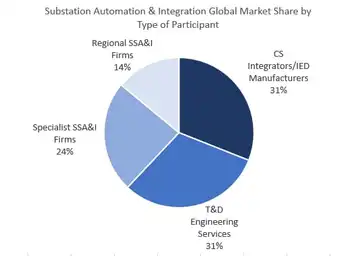Former Enron 'boy wonder' recounts lies
HOUSTON, TEXAS - For a "boy wonder" at Enron Corp. known for advising his colleagues to "just do the right thing" as he rose swiftly into the highest ranks of the company while in his 30s, David Delainey is spending much time talking about all the wrong things he said he did.
"We lied to shareholders, employees, the public," he said. "It was just plain wrong."
Delainey, now 40, was in the middle of testimony in the fraud and conspiracy trial of company founder Kenneth Lay and former Chief Executive Jeffrey Skilling.
Fastow admitted to engineering schemes to hide company debt and inflate profits for years. Indicted in October 2002 on what eventually grew to 98 criminal counts including fraud, conspiracy, insider trading and money laundering, he ultimately pleaded guilty to two counts of conspiracy, admitting to orchestrating schemes to hide Enron debt and inflate profits while enriching himself. He surrendered nearly $30 million in cash and property and agreed to serve the 10-year maximum prison term as part of his plea agreement.
Fastow's appearance would mark his first public statements about his admitted crimes at Enron and counter the insistence of Lay and Skilling that they did nothing wrong and there was no fraud.
Delainey acknowledged he aspired to succeed Skilling when the CEO quit Enron in August 2001. Lay ultimately assumed the job.
On Wednesday, Delainey repeated his assertion that he and Skilling and a half-dozen other top company officers agreed to transfer the financially stressed retail division of Enron he headed into the healthy wholesale business unit to improperly hide $200 million in losses.
That decision, known as a "resegmentation," was on top of lies and misrepresentations he said he told.
Asked in staccato fashion by Petrocelli about lies to employees, shareholders, to Wall Street analysts and on videotapes, Delainey repeatedly replied: "Yes."
When he added at one point, "I lied as well as the rest of the management team," Petrocelli cut him off.
"I'm asking you as David Delainey," he said.
"Yes," Delainey responded.
Petrocelli focused on a tense March 29, 2001, meeting in Skilling's 50th-floor office in downtown Houston, just a few blocks from the federal courthouse, where Delainey said Tuesday he and a half-dozen top Enron executives decided to improperly transfer the retail unit to wholesale to hide the losses.
Delainey, a CPA, said before that meeting, he bypassed company accountants to do his own research to examine what he viewed as a clever deal.
"I wanted to determine how strong the arguments were we could get away with it," Delainey said. "It was outrageous."
Instead, Petrocelli said, Delainey chose to do the wrong thing, violating a credo he had instilled in others in his more than a decade at Enron as he quickly climbed the executive ranks. In his mid 30s, he had just become CEO of Enron Energy Services, the retail unit, after having run the profitable wholesale energy trading unit, Enron North America.
"I was scared to death," he said of the decision at the meeting with Skilling, called by Richard Causey, then Enron's chief accounting officer. "I wish on my kids' lives I had stepped away from that table."
Delainey said Skilling never explicitly ordered him to lie, and his superiors' implicit approval was "the worst conduct I have ever been a part of, and everybody knew exactly what was going on at that meeting."
"Management had a duty to tell shareholders there had been a business failure," he said. "It's common sense."
Enron executives touted the transfer in public as adding efficiencies and Petrocelli showed an e-mail Delainey received congratulating him for "awesome" third-quarter earnings in 2001, reversing the retail division's slide. Six weeks later Enron crashed into bankruptcy protection in December that year.
"We were better but certainly not healthy," Delainey responded.
He also acknowledged he initially lied to investigators to try to avoid prosecution before he pleaded guilty in October 2003 to insider trading. He is testifying as part of a plea agreement in hopes of getting a lenient punishment.
Skilling faces 31 counts of fraud, conspiracy, insider trading and lying to auditors, while Lay faces seven counts of fraud and conspiracy. If convicted, both could serve decades in prison. Only Skilling faces allegations of improper stock sales.
Prosecutors said they anticipated wrapping up their case, now in its fifth week, by the end of March.
Related News

Lump sum credit on electricity bills as soon as July
ST JOHNS - Most people who pay electricity bills will get a one-time credit as early as July.
The provincial government on Thursday outlined a new directive to the Public Utilities Board to provide a one-time credit for customers whose electricity rates are affected by the price of oil.
Electricity customers who are not a part of the Labrador interconnected system, including those using diesel on the north coast of Labrador, will receive the credit.
The credit, announced at a press conference Thursday morning, will come from the rate stabilization fund, which has an estimated surplus of about $50 million because low oil…




